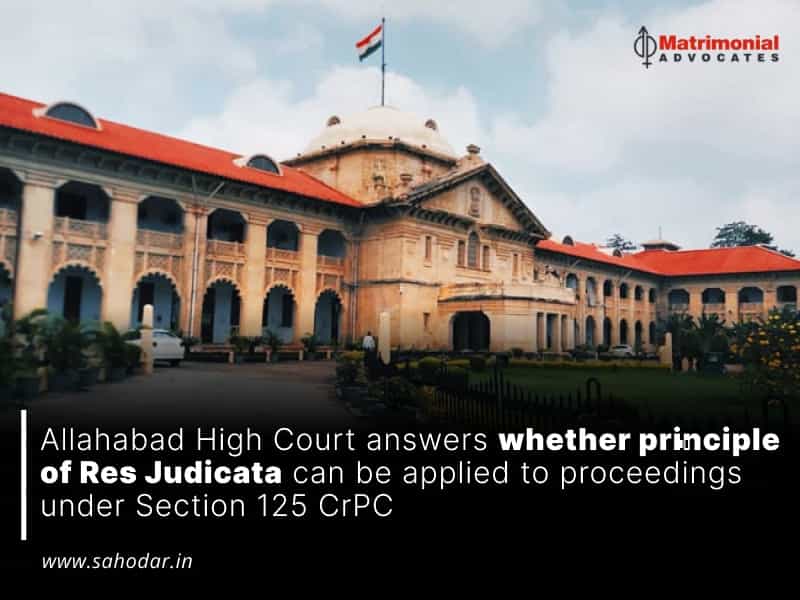
The Allahabad High Court recently addressed an important question regarding whether the principle of res judicata applies to proceedings under Section 125 of the Criminal Procedure Code (CrPC). The case concerned an application to quash a judgment and order passed by the Family Court, which rejected an application made by the applicant under Section 125 CrPC.
The applicant, an unskilled housewife and mother, had filed the application seeking maintenance for herself and her children after being kicked out of her matrimonial home by her husband and his family members for not fulfilling their demand for an additional dowry of Rs. 20 lakhs. The court below had rejected the application for want of prosecution on March 1, 2017.
Following the rejection of the applicant’s initial application under Section 125 CrPC, she filed another application under Section 126(2) CrPC, which was subsequently rejected by the Principal Judge of the Family Court. The applicant then filed a fresh application under Section 125 CrPC before the same judge, which was also rejected on the grounds of res judicata.
The bench considered three issues related to the proceedings under Section 125 CrPC. Firstly, whether the principle of res judicata as provided under Section 11 of the CPC applies to such proceedings. Secondly, whether this principle applies to the applicant’s case. And finally, whether the applicant can file a fresh application under Section 125 CrPC after her two previous applications under Sections 125 and 126(2) CrPC were rejected for want of prosecution.
Section 11 of the Civil Procedure Code (CPC) is a provision related to the doctrine of res judicata. It states that once a matter is finally decided by a competent court, the decision shall operate as res judicata and shall not be reopened or questioned again in any subsequent suit or proceeding between the same parties or their legal representatives. The principle of res judicata aims to promote judicial efficiency, finality, and consistency in the administration of justice.
In addressing the first issue, the bench observed that although a petition/application under Section 125(1) CrPC is filed before a criminal court as defined under Section 6 of the CrPC, the right being adjudicated upon by the court is purely civil in nature. However, Section 125(3) of the Code empowers the court to impose a sentence of imprisonment if the order made under Section 125(1) CrPC is not obeyed, making the proceeding partly criminal in nature. Thus, a proceeding under Section 125 CrPC is considered quasi-civil and quasi-criminal in nature.
The High Court cited the case of M. Nagabhushana v. State of Karnataka, where the Supreme Court held that the principle of res judicata applies universally, meaning it applies to both civil and criminal proceedings to ensure the interest of justice and avoid multiple litigations. The bench concluded that the principle of res judicata, as provided in Section 11 of the Code of Civil Procedure, applies to proceedings initiated by an application under Section 125 CrPC. In addressing the second issue, the court explained that the principle of res judicata means that an issue that has been definitively settled by a judicial decision operates as a bar to trying the same issue again. This principle aims to prevent multiple proceedings and ensure finality to an issue that has already been decided, so that parties are not subjected to vexatious litigation, and valuable court time is saved.
After referring to several judgments, the bench stated that the principle of res judicata will only be applicable in the second application or case if the matter directly and substantially in issue was also in issue in the former applications between the same parties under Sections 125 and 126(2) of the Cr.P.C. However, if the earlier case was not decided on merits and without giving an opportunity of hearing to the applicant, then the second application for the same relief would still be maintainable, and the principle of res judicata would not apply. The High Court allowed the application in light of these findings.
Source: https://lawtrend.in/whether-principles-of-res-judicata-apply-to-the-proceedings-under-section-125-crpc-allahabad-hc-answers/




